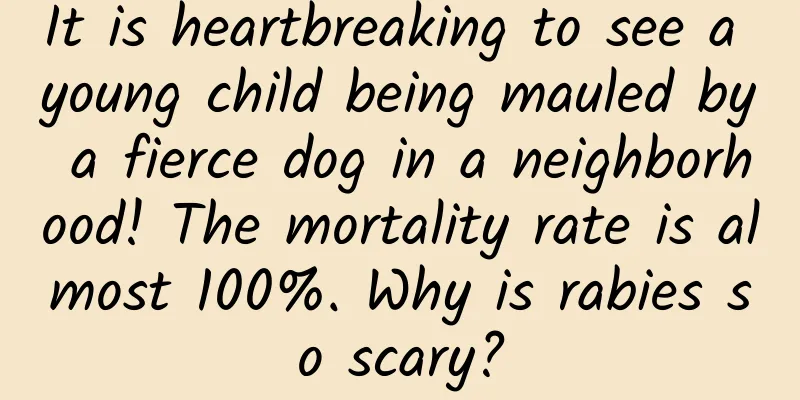Do ruminants have fewer stomach problems than humans?

|
I saw a very interesting question today and I would like to share it with you: If humans were ruminants, would the number of patients with stomach diseases be greatly reduced? Hahaha, this question is really a big brain hole, you know, ruminants and us primates have evolved at least 40 million years apart. But since it's a feast, it's also a good idea to satisfy our monogastric desire for polygastrics, so let's open up the brain hole of rumination today. 01. The stomach of ruminants When talking about ruminants, the first thing we need to clarify is: the stomach of ruminants. Ruminants have a total of four stomachs, from front to back, they are the rumen, reticulum, omasum and abomasum. However, although they are all called stomachs, they actually have different functions. The main purpose of the rumen is to store food in the short term, which is more like an enlarged version of the esophagus. However, this stomach has one special feature, that is, the rumen also has unique microorganisms, so it can digest some food. This step is a bit like our intestines. In fact, these microorganisms are relatively lacking in humans, that is, microorganisms that can digest various types of cellulose. After passing the rumen, you reach the reticulum (also called honeycomb stomach). As the name suggests, this stomach is mesh-shaped, and one of its important functions is filtering. The mesh structure can intercept larger plant fragments. There is no other way, ruminants swallow food whole and are not picky about food, so they easily bring in difficult-to-digest food. Next is the omasum, which is actually more like a continuation of the rumen. At this step, the food will be further ground into very small pieces. Finally, it arrives at the abomasum, which is more like our human stomach. After the digestive juice is secreted, it will enter the abomasum and reach the intestine after digestion. Therefore, it is also called the "true stomach." It can be seen that the stomach of ruminants is actually a workshop from rough processing, filtration, to digestion. It completes the actions that only the human true stomach can accomplish through four steps, but its efficiency is actually very low. 02. Why did ruminants evolve such a stomach? Since it is inefficient, why did ruminants evolve such a stomach system? This is the result of natural selection and the survival of the fittest. The digestion of food can be divided into physical and chemical processes. The former is the grinding process of the chewing system mainly based on teeth and gastrointestinal peristalsis, which aims to make the food more finely divided. The chemical process is to further chemically decompose the food through gastric acid, digestive juice and the like before finally absorbing it. However, for ruminants, daily physical processes are a luxury. Ruminants are herbivores, so they can be said to be the weak ones in the food chain. They have to face attacks from many wild beasts, so escaping is a basic daily routine in life. When they stop for a short time to rest, they have to eat grass quickly to fill their stomachs. Well, in this case, chewing food is already a luxury. The main purpose of their teeth is to bite off the grass and then swallow it, so that they can eat a quick meal and then continue to avoid wild beasts. Only when they find a safe place can they stop, and then pour the food out of the stomach by rumination, and let the teeth chew and grind it to complete the physical digestion process. It can be seen that the four stomachs of ruminants actually evolved to make up for the problem of not being able to chew when eating. After all, teeth are the sharpest chewing tools of the human body. 03. Human Stomach Therefore, humans do not actually need four stomachs. When we enjoy delicious food in our daily life, we do not eat it in a hurry, but chew it slowly and swallow it carefully, thus leaving enough time for the teeth to chew, which reduces the burden on the stomach. In fact, there is one thing that is beyond many people's expectations, that is, the digestion efficiency of ruminants is not high, and gastrointestinal diseases are even more common. Studies have pointed out that among the internal diseases of ruminants, 47.2% of the diseases are gastrointestinal diseases, especially those caused by pregastric retardation, which is caused by insufficient physical digestion process of ruminants. Therefore, for us humans, there is no need to envy the stomachs of ruminants, because they lack the process of chewing and swallowing slowly. Because of this, we must cherish the physical digestion process of being able to chew and swallow slowly. 04. About gastrointestinal problems In daily life, many people experience gastrointestinal discomfort. In this case, one of the strategies to improve gastrointestinal condition is to increase physical digestion. That is, chew slowly and swallow thoroughly, use the hardest teeth to grind the food to reduce the digestive burden of the stomach and intestines. This is the only way to reduce the burden on the stomach and intestines. For people with poor gastrointestinal function, it is very necessary to consume a certain amount of fiber, which can promote gastrointestinal motility and improve gastrointestinal conditions. If you have ordinary stomach discomfort in your daily life, you can also try some ingredients with conditioning effects. And the utilization rate of food is also improved. For patients with stomach problems, they need to find special regulating drugs. The most common stomach problem is excessive stomach acid. In this case, it is necessary to suppress the components of stomach acid, mainly using alkaline substances to neutralize the acid in the stomach. It can be seen that for humans, we already have an excellent digestive system and do not need to use the stomach of ruminants. In addition, there are many stomach-nourishing and stomach-protecting preparations to help us regulate stomach health. [1] Ma Fangli, Shen Xuemei, Shi Jun. Effects of Codonopsis pilosula polysaccharide on gastrointestinal function of experimental animals[J]. Anhui Medicine, 2014, 18(09): 1626-1630. |
<<: Let’s go! Cross China’s longest National Highway 219
>>: Using AI to get out of the "sand dunes"
Recommend
What are the functions of Foshan check-in mini program? How to create a check-in app on WeChat?
A few days ago, a boss called me and wanted to mak...
How can we make the marketing information of a product spread widely?
As an Internet product person, you will more or l...
If I have joint problems, will taking glucosamine help? Is the MSM in glucosamine toxic? Is it banned?
Rumor: "MSM in Glucosamine is banned and can...
Zheng He did this for this group of people when he came back from his first voyage to the West...
...
What is the relationship between oranges and tangerines? You may have been guessing wrong all along!
Mixed Knowledge Specially designed to cure confus...
rich! capricious! : 5 best ways to promote paid apps
How to promote APP through mobile advertising pla...
China Mobile's own-brand 4G mobile phone: a whip on the manufacturer
China Mobile decided to reduce or even stop fixed ...
How can we get a reliable cancer screening that can cost thousands of dollars?
At the end of each year, many institutions organi...
Why do biscuits become softer and bread become harder as time goes by?
Friends who like to stock up on snacks, have you ...
Focus on the Global Mobile Internet Conference (GMIC) 2015 Conference: "Mobile" Creates Everything
On February 10, the Global Mobile Internet Confer...
Facebook's six news feed ad formats
When talking about information feed ads , we have...
The cause of the accident was revealed! Why did the subway suddenly break down?
Audit expert: Hu Qizhou Associate Professor, Scho...
Helicobacter pylori has these "effects"? Don't be complacent, you still have to treat it!
In 1982, Australian scientists Barry Marshall and...
Lao Luo’s first Douyin show, 4,000 words you must read about live streaming!
Lao Luo is on the hot list again, returning to hi...









